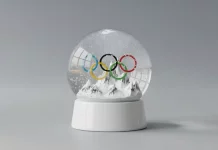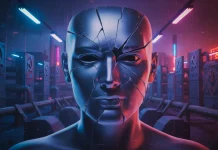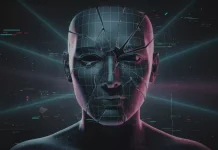Around 150,000 Russians have already returned from the war against Ukraine. The state offers them extensive social guarantees, from cash payments to preferential mortgages. Official propaganda calls them “the pride of the country” and “Russia’s new elite.” However, as public opinion polls show, the heroes of the SVO are increasingly irritating Russians.
Vladimir Putin has repeatedly called the participants in the SVO (Special Military Operation) “Russia’s new elite” and “role models.” He has emphasized that it is precisely these people who should educate young people and occupy leadership positions in the regions.
In the spring of 2024, on the orders of the president, the “Time of Heroes” project was launched, a program to prepare former SVO combatants for public service. The project is headed by the deputy head of the presidential administration, Sergei Kiriyenko.
Sixty-five thousand applications were submitted, but only 83 were selected, and 21 of them obtained actual positions.
The most well-known participant was Artiom Zhoga, former commander of the Sparta battalion. In June 2024, he was appointed the president’s representative in the Ural Federal District.
The rest of the program participants mainly took up regional or social positions.
As you can see, the Russian ruling class is in no hurry to fill its ranks with SVO heroes. The thing is that the structure of the ruling elite is quite closed, there are no random people in it, social mobility does not work, and, of course, they are not waiting en masse for SVO participants there.
Therefore, the authorities are looking for other forms of employment for veterans, for example, positions as deputies. In the 2025 municipal elections, 1,663 SVO participants ran and 1,035 won, according to the head of the Central Election Commission, Ella Pamfilova. At the moment, it is unclear how many of them will be in the State Duma after the 2026 elections, as deputies are also in no hurry to give up their mandates. Information has appeared in the press that deputies from the United Russia party who voluntarily gave up their seats to the “heroes of the SVO” were promised help in finding employment.
Another way to reinforce the status of SVO heroes is through the patriotic education of young people.
Commemorative plaques in honor of fallen “heroes” are being placed in schools across the country, and survivors are invited to talk to children “about important issues.”
In reality, the effect of this propaganda has been the opposite. In the fourth year of the war, Russians’ attitude toward SVO participants has worsened considerably, as confirmed by both state and independent sociologists.
According to data from VCIOM (Russian Public Opinion Research Center), one in five Russians (19%) does not consider SVO participants to be heroes on the same level as soldiers of the Great Patriotic War.
A survey conducted by the Levada Center revealed that about 40% of Russians perceive the “heroes of the SVO” as mentally ill. Many fear that their return will lead to an increase in crime and violence. Even among supporters of the war, 35% admit that veterans can be dangerous.
These fears are not unfounded. Many SVO participants have criminal records and, upon their return, commit new serious crimes. Russian media regularly report cases of murder, rape, robbery, and torture committed by former soldiers. The number of soldiers charged with murder since the start of the invasion of Ukraine is approaching a thousand.
The authorities also understand this risk. According to Reuters sources close to the president’s administration, Putin fears that the army’s return from the war will lead to an increase in crime and political instability. One of the agency’s interlocutors compared the situation to that of the 1990s, when veterans of the Afghan war formed gangs and organized criminal groups (OCGs).
The fears are not only related to the risk of crime, but also to the economic situation. The multimillion-dollar payments to SVO participants contrast sharply with the worsening situation of the rest of the Russian population. With falling incomes and rising prices, social discontent will only increase.
It will become increasingly difficult for the Russian authorities to maintain a balance between the heroization of SVO participants and growing social discontent. On the one hand, the Kremlin needs these people as a propaganda tool and a symbol of “national unity.” On the other hand, it is precisely these people who are becoming a source of social tension, crime risk, and internal instability. The Kremlin will have to find ways to integrate veterans into society without destroying the existing political and social order, a task that may prove to be one of the most difficult for Russia today after the end of the war.
VS





